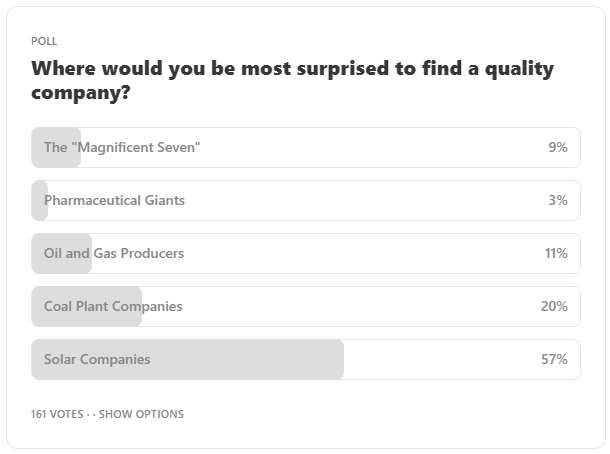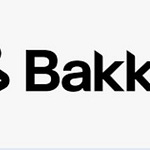Welcome to Episode 127 of Special Situation Investing.
My cohost and I invest to support our families and provide for them when our mortality lies six feet underground.
We also invest because it’s an absolute blast.
Investing is an outlet for constant curiosity, an excuse for limitless learning, and an arena to match one’s psychological fitness against the crowd’s, all with the evolutionary motivation of potential triumph and potential ruin.
Those first two components—constant curiosity and limitless learning—are traits common to most investors and arguably a given in the field’s leaders. I describe the intersection of these two as “rabbit holes of curiosity.”
Rabbit hole: (noun) something that is intricate or convoluted like a labyrinth and often has no outlet or resolution. Here’s what I mean: a spark of curiosity about a topic leads to research, which produces more questions, leading to deeper study of the subject or of a totally one. The process repeats endlessly. What may sound like a nightmare to those who don’t enjoy it, is immensely engaging for those who do.
Inevitably, this process produces more topics than we can capture in our biweekly pieces at Special Situation Investing. Today’s piece is a compilation of recent rabbit holes that haven’t graduated to a piece of their own. I hope you find it enjoyable and perhaps it’ll open rabbit holes for you.
A Coal Power Station, a Bitcoin Miner and an AI Data Center
What has all the makings of a joke about the topsy-turvy world in which we live, is actually the situation at Hallador Energy (HNRG).
Originally an oil and gas exploration company, Hallador was founded in 1953 as the Kimbark Company Ltd. In 2006, the company—by this time called Hallador Energy—shifted its operations from oil and gas to coal mining by buying a majority stake in Sunrise Coal. Operating coal mines in the Illinois Basin remained its primary business until the last few of years.
In 2021, Hallador purchased the right to plug power into the grid from the Merom Power Station property. This station, located 20 miles from Hallador’s mines, is a 2-unit, 1080 MW rated coal-fired power plant and was scheduled to be shutdown in 2022. Hallador’s original plan was to build a solar array power station on a vacant plot owned by the soon-to-be-closed coal plant.
What happened next is best described by the entirely unbiased (cough) piece published in the IndyStar:
A pollution-spewing power plant in western Indiana that was set to close this year is getting a reprieve after being purchased by a coal company and landing a new energy-guzzling neighbor hoping to cash in on the international cryptocurrency boom.
The exact sequence of events is hard place, but they include: a bitcoin miner moving into the area, the Merom Generating Station’s closure being canceled, and Hallador energy inheriting the power station infrastructure essentially for free since they owned the only right to produce power on the property. Hallador subsequently made the second major transition in its company’s history, this time becoming a coal plant electricity producer.
Just as the United States wakes up to its enormous need for more electricity, a coal plant answers the call of duty. In Hallador’s latest earnings call, the CEO discussed how it’s positioning itself to attract data-center-type customers. We can’t help but be amused wondering if coal plants will get a second life thanks to artificial intelligence.
Below is a chart from Hallador’s Q1 results showing customers contracted commitments for energy and capacity. It’s not full, but it’s slowly filling up each quarter. Not bad for a generating facility that was supposed to be dead two years ago and has Michael Bloomberg breathing down its neck as we speak.
Not only are there customers purchasing its energy, there are investors finding the company attractive.
I was halfway through William Green’s interview of Bryan Lawrence, the founder of Oakcliff Capital, when I looked up his 13F. I was surprised to see Oakcliff has owned Hallador since 2017. The poll from our last Portfolio Update shows many our readers would also be surprised to find a quality company among coal plants. (But not nearly as surprised as to find one among solar companies. Interesting.)
Although Oakcliff bought Hallador before it transitioned to an electricity producer, because Lawrence believes “every day you don’t sell a stock is a day you choose to buy it,” I assume he still likes the company.
Whether or not it’s a great investment, Hallador Energy will be interesting to watch since it sits in the cross current of just about every major economic and political hot topic of the day.
A Royalty Play on The Rocks that Connect America
The Perferred Shares Podcast is a must-subscribe. It’s a show put together by three guys about, as they say, “business, history and business history.”
I’ve enjoyed a number of episodes including Vending Machine Mania and Bellerby & Co: The Rebirth of Artisanal Globemaking. Maybe because of my life-long love of maps or my interest in basic materials, my favorites, so far, are two episodes on the Interstate Highway System. In Connecting a Continent: The Rise of the Interstate Highway System they introduce the project and in The Rocks that Connect America they dive deeper into the aggregates business, generally, and the company Vulcan Materials, specifically.
Nestled in the middle of this last episode is the mention of a company that grabbed my attention. The company is FRP Holdings, Inc (FRPH).
FRPH’s primary business is as a real estate holding company. It owns multiple properties within the Washington DC/Maryland metro area. But a secondary segment, one that accounted for 35% of Q1 revenues, is its ownership of aggregate pits. Here’s a paragraph from FRPH’s 2023 annual report:
The Company owns a fee simple interest in 14 open pit aggregates quarries located in Florida, Georgia and Virginia, which comprise approximately 16,650 total acres. The Company’s quarries are subject to mining leases with various tenants, including Vulcan Materials, Martin Marietta, Cemex, Argos, and The Concrete Company. Aggregates consist of crushed stone, sand, gravel, fill dirt, and limestone.
An aggregates business is attractive enough, but the best part is that FRPH doesn’t operate the rock pits. It just owns the properties and receive royalties. The Preffered Shares episode gave the following details on the company:
[O]ne part of the business that is very easy to understand and relates directly to this episode is they're still involved in the aggregates industry. They own a number of rock pits
But what's so interesting about FRPH is they don't actually operate them themselves. They have these rock pits and they predominantly lease them all out to the large players, like ML and Vulcan. And what's so wonderful about that is just like all the other advantages listed about rock pits, in terms of the value chain for FRPH, there's practically zero capital intensity on their part. When you look at this segment of their business, very little capital needs to go into it.
All of the equipment, building infrastructure, machinery, all of that is taken care of by the companies paying to lease out and use the pits. And then FRPH receives a royalty that's a fixed percentage of revenue with a minimum payout floor. And it's structured to benefit over time from both volumes and unit price increases. So you look at something on an industry level, like cash gross profit per ton kind of trending up into the right over time…
This royalty income stream that FRPH has…has an operating profit margin of 83.2%….And on top of that, you look at their proven and probable reserves, what's still in the ground. They have probably 70, 80 years of rocks left in the ground. And another beautiful thing about the industry is over time, more rock is extracted, you get deeper into the ground, you get to really see what else is really still in there. And despite extracting and processing rock, often it’s the case that you actually discover, hey, there's actually more rocks underneath.
With high margins, growing reserves, little to no capex, and an essential material, FRPHs aggregates business has a lot going for it.
As you might expect, given our affinity for both basic materials and royalty businesses, my cohost and I were excited to be introduced to FRPH.
One other quick note. Having lived in both Washington DC and Maryland, I can attest to the quality of many of FRPH’s real estate holdings from first hand experience. Some of its newest development projects are located in one of DC’s most desired areas to live and work (such as the one in the photo below) especially among the younger crowd that makes up so much of DC’s working population.
FRP Holdings is a company we intend to monitor and do more work on going forward.
Two Weeks with Value Investor Bob Robotti
Another Substacker whose work I enjoy is Jake LaMotta over at Raging Bull Investments. A couple weeks ago, while reading some of his work, I hoped over to the dark side and read his content on X. The post shown below peaked my interest.
What ensued was a deep dive into consuming everything I could on Robert Robotti. (If you’re interested, a good place to start is his very recent interview on the Richer, Wiser, Happier Podcast.) While I didn’t spend two weeks with Robotti in person, I feel like I did.
Robotti is a quintessential New Yorker, talking a mile a minute. He’s also a renown value investor of cheap stocks and his talks and writings are full of valuable insights. This is the one I found most intriguing.
In his recent content, Robotti makes the assertion that US companies, particularly US industrials, stand to benefit from a couple massive macro tailwinds. The first is cheap and abundant natural gas. For many industrials, natural gas is a key input, so it makes sense that a cheap input would create a competitive advantage. He believes more production will occur in the US in the future because of this happy circumstance.
The other tailwind for US companies, is what is commonly call “reshoring.” Robotti claims it’s not exactly reshoring because many of the companies coming to the US are not native US companies. They are native to other countries, particularly Europe. One key reason is the point made previously, cheap natural gas. It makes sense. Why remain in, for example, Germany, when its possible to relocate to the US and improve profit margins?
As a result, Robotti believes US industrials, such as chemical companies, and companies that will provide the materials to support “reshoring,” such as cement companies, will be out performers in the near future. In addition, such companies could prove good investments because many of them are in industries that have been capital-staved for over a decade and they could benefit from the Inflation Reduction Act projects.
A look through Robotti’s 13F filing shows he puts his money where his mouth is. Of his top ten holdings, seven are either in the materials, industrials or energy sectors.
In his presentation to the Value Investors Conference 2024, Robotti mentioned two companies that fit within this theme. One he owns. And one is a projected spin-off. I think both are interesting and worth closer looks.
The first is ArcelorMittal (MT), a Luxembourg-based multinational steel manufacturing corporation. Here’s a summary of why Robotti likes the company:
It’s the second largest global steel manufacture.
40% if the company is owned by the founding Mittal family.
It has a portfolio of projects coming online which will increase earnings.
It has a presence in critical growth markets, including North America, Brazil, and India.
The company paid down its debt and then over the last few years reduced its share count by 30%.
Share repurchases are on-going.
And lastly, it’s selling at a modest multiple to earnings.
A new holding for his company, Robotti purchased MT in Q1 2024. By the close of the quarter it was his 34th largest holding at a market value of $1.4 million.
The second company in Robotti’s talk, he mentioned as an example of companies responding to the favorable conditions in the United States. It was the Swiss-based building materials company, Holcim, and the announcement that it intends to spin-off its US operations.
Given the monopolistic nature of cement companies and the capital-starved state of its industry, they rank high on our watchlist, particularly the company we previously wrote-up—Eagle Materials. I couldn’t find much about Holcim’s potential spin-off beyond news articles on the announcement in January and the company’s presentation from the same period. But if it progresses, it’ll be something we track closely.
Conclusion
That about wraps up this latest edition of Special Situation Investing. Thanks for joining us on our journey and we hope our work is worth your time to read and listen to.
Before we close, a quick request.
The format of this piece was a deviation from our standard which usually discusses a single topic. If you would, hop over to the Substack comments and leave us your thoughts. Also, please comment with further information you have on any of the topics of these rabbit holes we discussed. And, most importantly, if there’s a rabbit hole you think we’d enjoy diving down, please, let us know. We’re always up for the fun. Thanks!



















Share this post